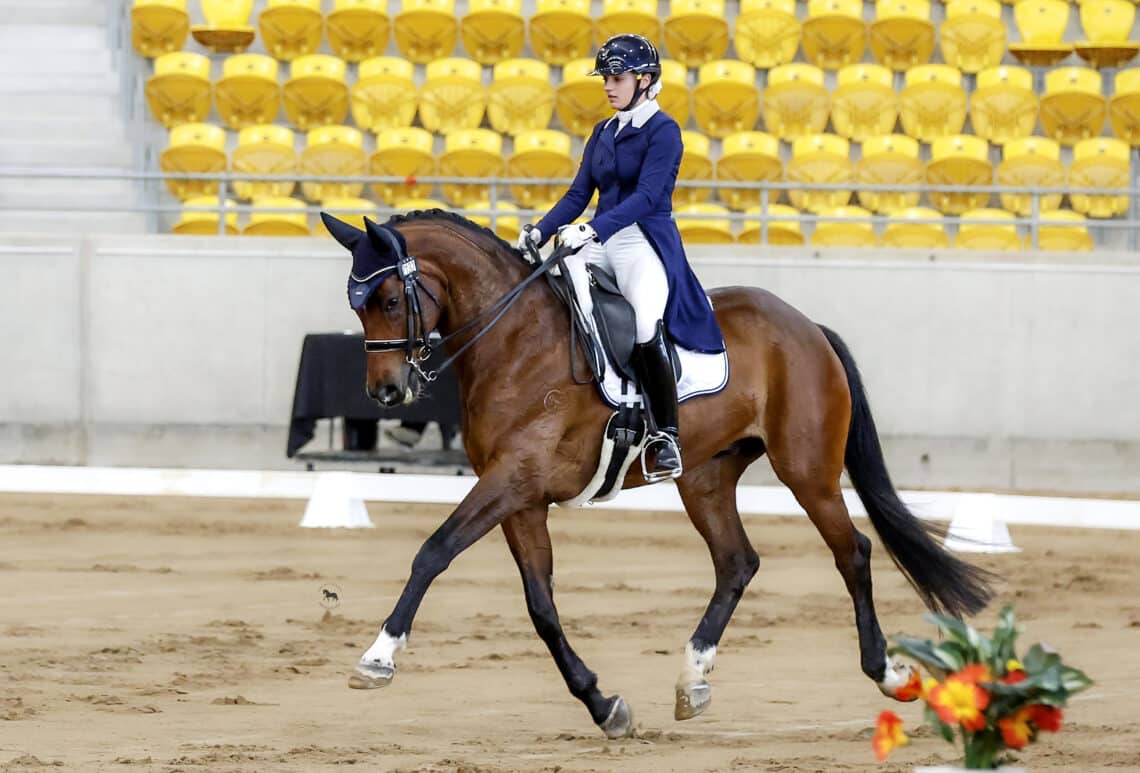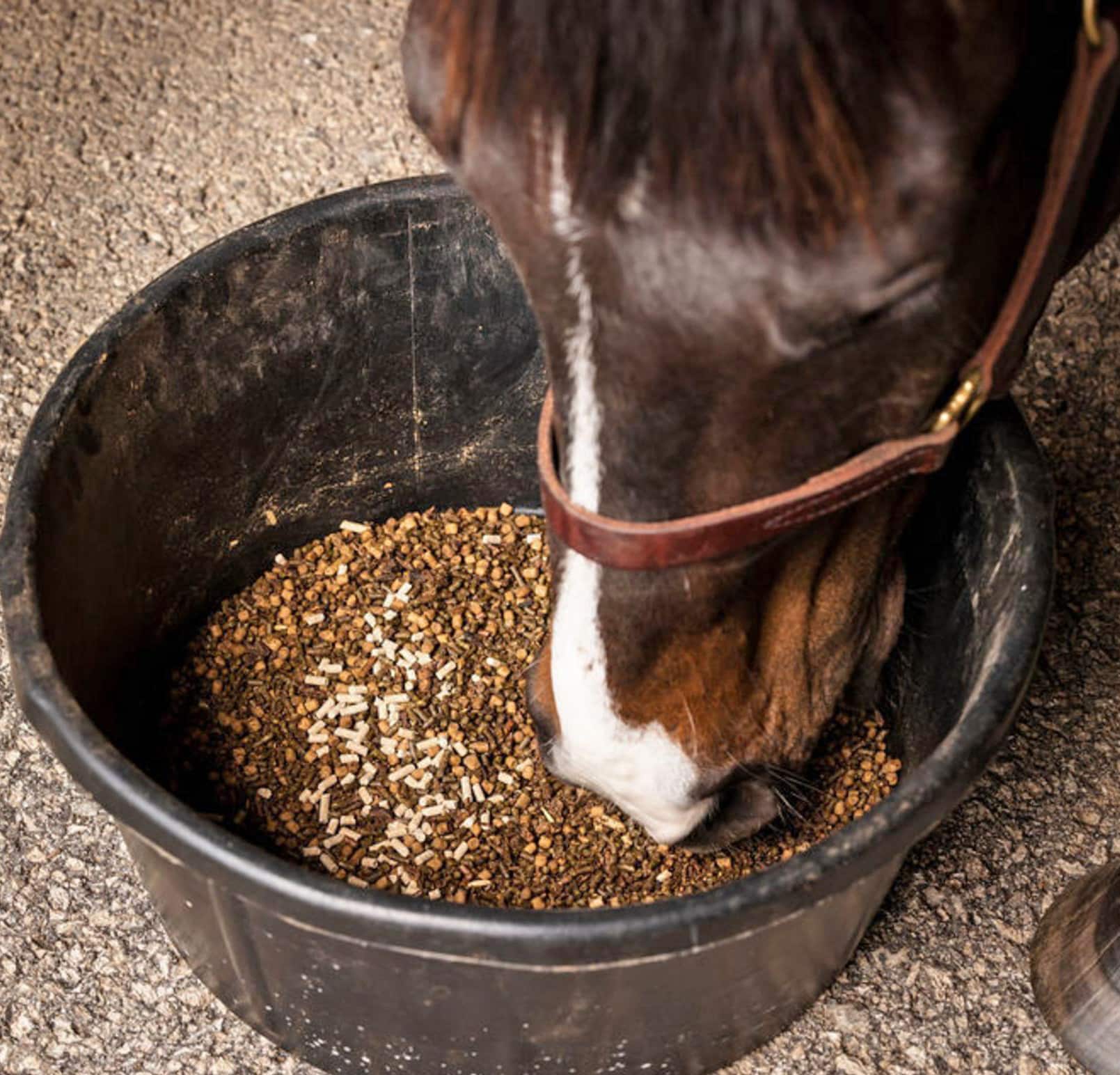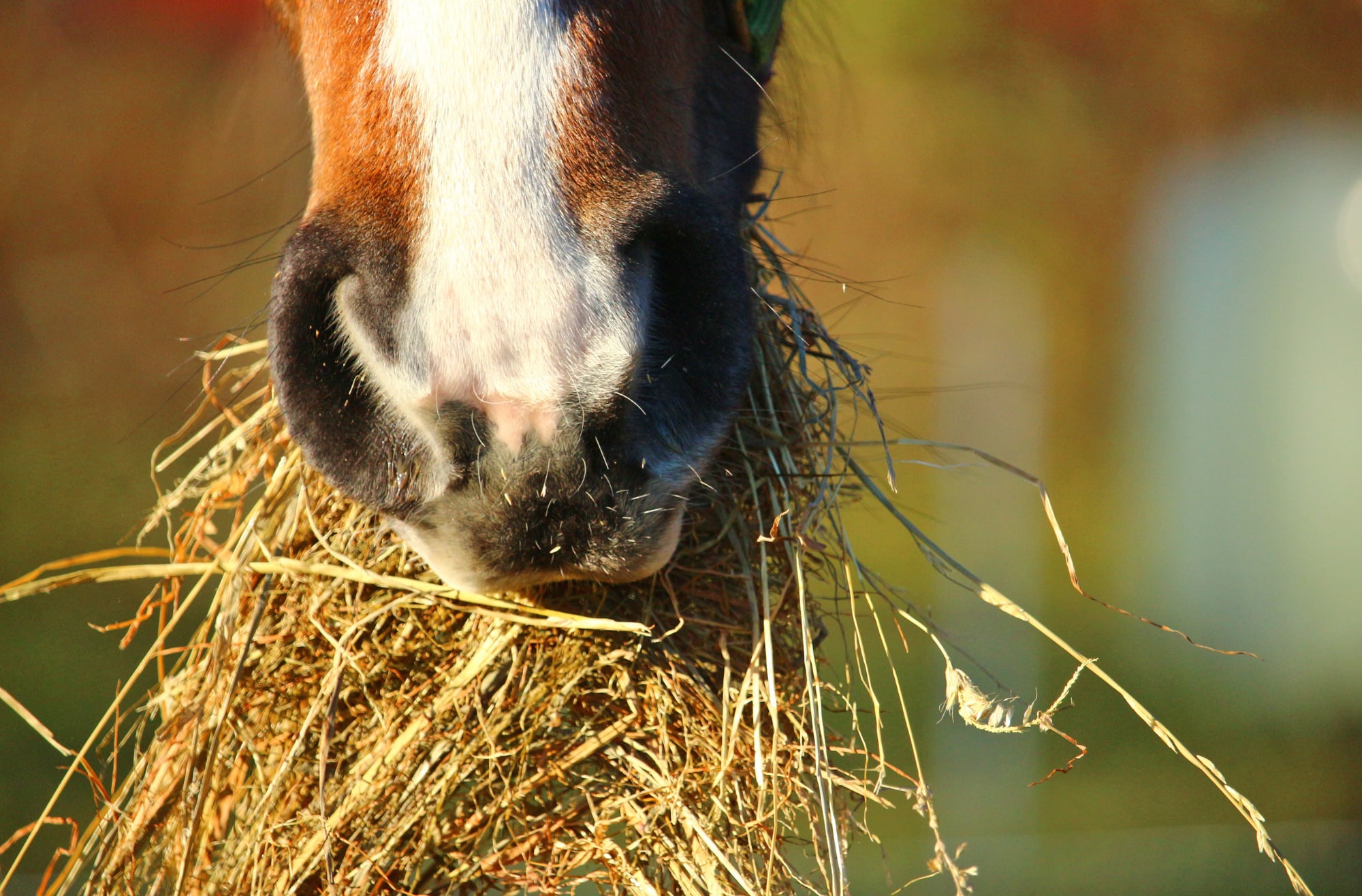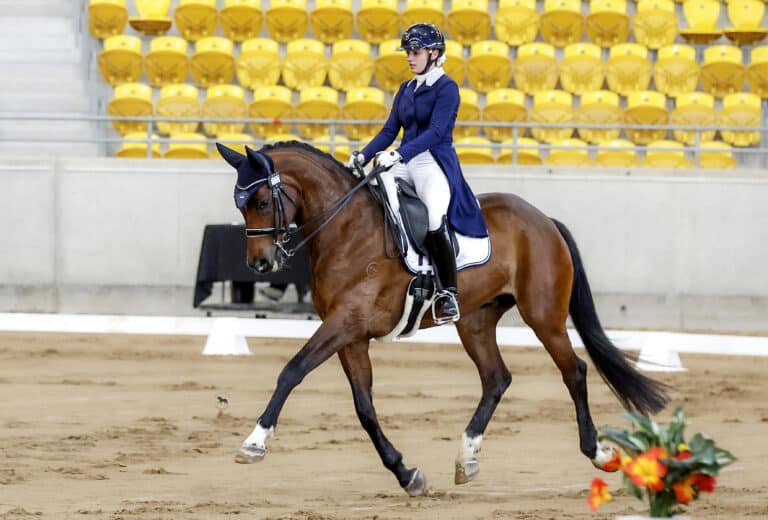
Keep calm and carry on competing
Is your horse more anxious than you on show day? Equine nutritionist Dr Clarissa Brown-Douglas has some strategies to help create a calmer competitor.
There is no one more focussed than an equestrian preparing for a competition! From getting entries in on time, to learning tests and ensuring gear and horse are sparkling – and there is nothing more disappointing when, despite all the hard work, your horse is a bundle of nerves on show day and can’t perform at their best.
This is an all too common occurrence with riders frequently turning to nutritional supplements to help. But, as with most things in life there is no quick fix and modifying behaviour in stressful environments is more about preparation and careful management than expensive supplements.
Behaviour and Nutrition
Despite the many products on the market designed to calm horses, there is surprisingly very little published research linking behaviour modification to nutrition, which is likely due to the fact that it is extremely difficult to study. That being said, there’s a lot of anecdotal evidence that nutrition affects behaviour, particularly with regards to energy sources and feeding management.

If you have a spicy pony, chances are you already know that choosing feeds high in fibre and fat is preferable to non-structural carbohydrates (NSC) such as cereal grains. But energy sources are only one piece in the puzzle. When assessing behavioural problems, equine nutritionists will take into consideration what is being fed as well as how its being fed.
Diets for all horses should be predominantly forage, consisting of at least 1.5% of body weight in hay, chaff and/or pasture. Most performance horses should receive good quality grass hay or a combination of grass and lucerne, while those who tend to get excitable and hot would benefit from lower sugar, higher protein hays such as grassy lucerne.
Additional cool calories can be provided with highly digestible super fibres such as beet pulp and soy hulls, as well as fats and oils, including stabilised rice bran and vegetable oil, which provide slow release and tractable energy. Good doing horses should be offered lower energy fibre sources, such as low-sugar grass hay or stalky lucerne, rather than less hay. Another golden rule with energy is feed according to the workload – over-fed and underworked horses need to expend that energy somewhere!
In addition to energy, the diet needs to be nutritionally balanced for vitamins and minerals. Many behavioural issues are a result of nutrient deficiencies or imbalances. The best way to assess for any deficiencies is through diet analysis, which involves calculating the daily nutrient intake of all components of the horse’s diet, including assessment of forages.
Generally speaking, provided adequate hay is offered, a good quality commercial horse feed or a vitamin and mineral feed balancer fed at the recommended daily intake should cover most nutrients apart from salt. Salt (sodium chloride) should then be offered at a rate of 5-10g/100kg body weight.
Anxious and reactive behaviour can also be a result of pain and discomfort, so ensure that you rule out dental issues, injuries, and saddle, bit and bridle fit. Digestive upset can also impact your horse’s behaviour. Gastric ulcers and hind gut acidosis are two significant conditions that should be investigated in behaviourally reactive horses. Nutritional strategies to avoid and prevent digestive issues include feeding adequate roughage, avoiding long periods of time without food, ensuring that meal sizes are less than 2.5kg, ensuring that cereal grain has had some level of processing and cooking to assist digestion, and providing gastric support supplements such as gastric and hindgut buffers, yeasts, and probiotics. Riders often report a more placid, calm horse once digestive issues are addressed.
Calming Supplements
Supplements for behaviour and calming will usually provide one or two nutrients designed to top up a diet which might be deficient. Common ingredients in calming supplements include magnesium, thiamine (vitamin B1), and tryptophan, as well as a vast array of herbs. While some of these ingredients may affect behaviour in nervous or overexcited animals, much of the evidence for these products is anecdotal due to a lack of scientific study.
Another school of thought is that many of these supplements work on the placebo theory of treating the rider more than the horse, which certainly isn’t a bad thing provided they cause no harm!
Thiamine (Vitamin B1)
Thiamine or vitamin B1, plays a vital role in carbohydrate metabolism and nerve transmission. It is water soluble and not stored in the body, however in healthy horses, intestinal bacteria produce thiamine through microbial fermentation, which the horse can then utilise. Horses on high-grain, low-forage diets, or hard-working horses may have reduced production of thiamine by intestinal bacteria due to stress or hindgut acidosis. Supplementing thiamine may reduce anxiety by assisting the maintenance of nerve function, especially if stressed or on low forage diets.
Magnesium
Magnesium is an important mineral for horses and has a role in muscle and nerve function. Horses that are deficient in magnesium may show signs of spooky and excitable behaviour and may suffer muscle tremors or cramping. However, magnesium deficiency is rare because grass and hay normally contain sufficient magnesium to meet the horse’s requirements. While research in this area is lacking, some studies report magnesium added to an already balanced diet can positively influence behaviour in horses during stressful situations, while other studies have shown no positive effect. A Canadian study examining a combination of thiamine and magnesium administered 30 minutes before a stressful event resulted in reduced heart rates when compared with unsupplemented horses.

Tryptophan
Tryptophan is an essential amino acid used in the production of serotonin. Serotonin modulates mood and emotion. Low levels of tryptophan are linked to anxiety and depression in rodent studies. Despite equine calming supplements containing tryptophan, there is no scientific evidence for its efficacy in modifying behaviour in horses. In fact, several studies report low doses of tryptophan administered orally to horses caused mild excitement, while high doses reduced endurance capacity and caused acute haemolytic anaemia.
Herbal supplements
A plethora of herbal calming products are available for horses, which contain myriad herbs including valerian root, camomile, passionflower, hops, ashwagandha and many others. Herbs, however, should be approached with caution. Firstly, there is very little science to support the use of herbs in horses, with many of the recommendations made by herbalists based on research and experience in humans or another species. Also, check the competition regulations for your discipline or breed of choice, as additives may be listed as prohibited substances. For example, valerian commonly used as a calming agent in many herbal preparations, is banned by most sporting disciplines.
Competition Day
Assuming you have done your homework, with adequate exposure and training, and an appropriately balanced diet, you should have a horse able to regulate their behaviour when out and about. To reduce stress on competition day, it’s advisable to arrive early and allow your horse time to settle into the environment. Bring familiar feed, and water from home to ensure they stay fed and hydrated, and always have hay available for them to pick throughout the day. And by all means try a calming supplement, but don’t rely on it!
Behaviour is influenced by a horse’s age, breed, training, previous experiences, state of health, skill level of the handler, proximity to other horses, and factors such as whether or not the wind is blowing, and the presence of giraffes in trees! Calming supplements, while commonly used are generally a band aid approach for a bigger problem. Ensuring your horse is fed a balanced diet with plenty of good quality fibre, low NSC energy sources, and balanced for vitamins and minerals allows you to then focus on all the other aspects that contribute to anxious and reactive behaviour.
Visit Kentucky Equine Research and Equinews™ for information on all equine nutrition related topics.



